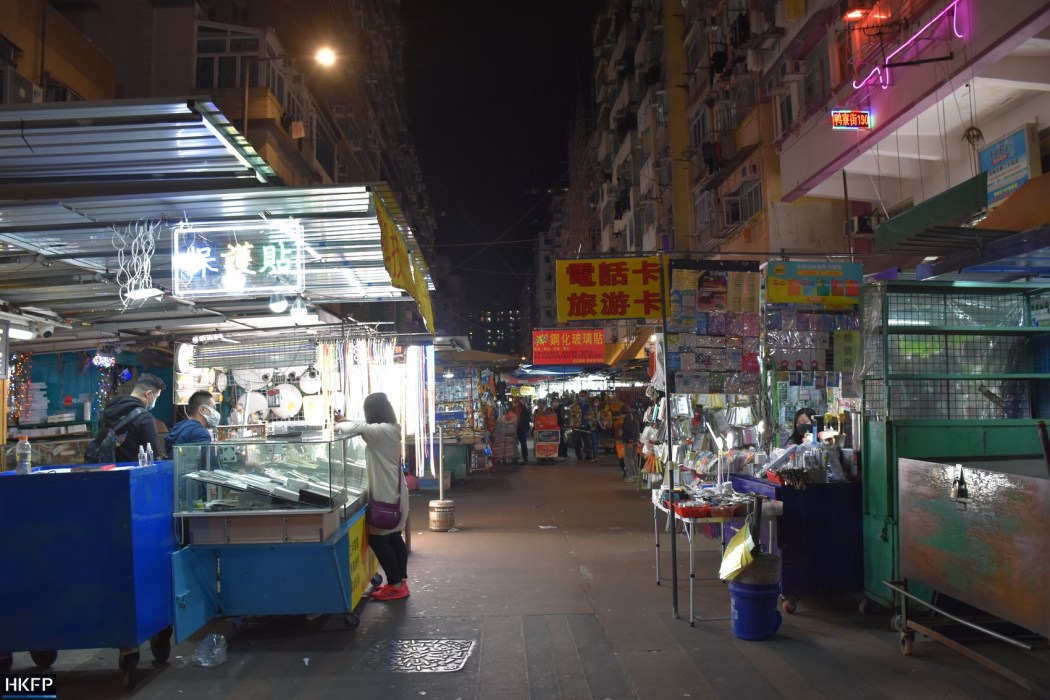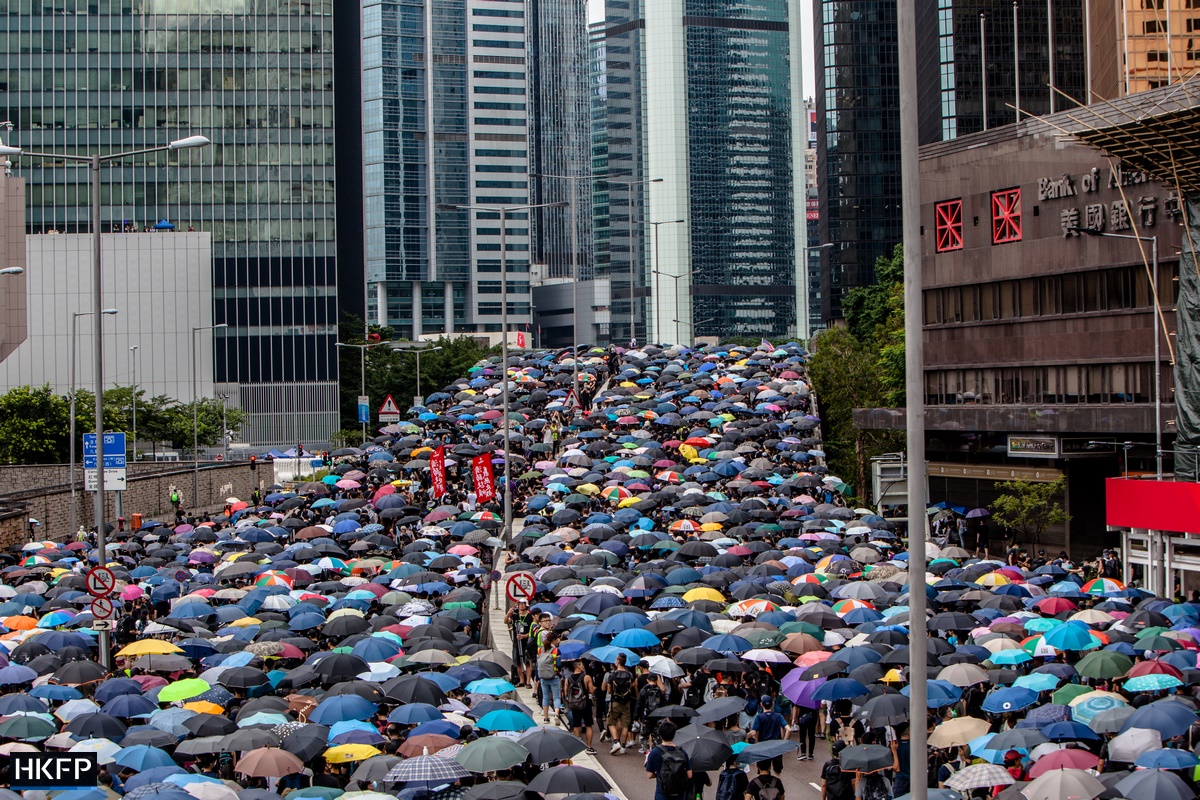Citing the need to curb crimes such as shopping scams, human trafficking and identity theft, Hong Kong’s government has announced plans to make buyers of prepaid SIM cards provide their real name and proof of identity, with false information punishable by 10 to 14 years in prison.
This policy would also allow telecommunication companies to store users’ personal data for a year, and terminate service should individuals fail to provide their personal information. Most terrifyingly, it gives law enforcers the authority to demand personal data from service providers with or without a court warrant. While this proposal is currently undergoing public consultation, it is doubtful that the government will take dissenting voices seriously and shelve the policy.

The SIM card registration plan is the latest strategy to encourage self-censorship by sowing fear and distrust in people’s everyday lives. These strategies prevent people from regaining the capacity to organise collective actions against the government. Not long after the abrupt implementation of the National Security Law last June, the Hong Kong government established a hotline for people to anonymously report anyone suspected of violating the law.
This practice extends state surveillance into everyday peer relationship and spaces. In the classroom, teachers and students have been reported to the government for supposedly infringing the law. In their workplaces, healthcare workers and employees in other sectors too have faced tremendous political pressure to comply as they face complaints and possible prosecution. By now, as the government’s crackdown and raids intensify, most Hongkongers understand that their workplaces and personal lives are not safe from state surveillance and punishment.

The campaign of surveillance and prosecution is made possible by cooperation from private companies. Six pro-democracy activists arrested during the January 6 mass crackdown told the press that the police had obtained their bank records without consent. An anonymous banking executive confirmed that police had been demanding an unprecedented number of bank records over the past six months.
When asked why the bank froze the accounts of former democratic lawmaker Ted Hui, the Chief Executive of HSBC responded that he must “comply with the law.” HSBC was not the only bank that has been providing clients’ information to police: major retail banks such as Hang Seng, Citibank and Standard Chartered are also involved. Banks are, in other words, either unwilling or unable to protect their clients’ information from the government.
Since banking is an integral part of many Hongkongers’ lives, this revelation heightens the general feelings of fear and unease. People are becoming acutely aware that any financial decisions they make may be used against them under the national security law in a court system that is no longer just.

In addition to banks, the government’s reach has extended to the internet. Recently, Hong Kong Broadband Network confirmed that it had complied with the security law and disabled access to HKChronicles, a website that doxed police officers and government supporters during the 2019 protests.
The website was in part a response to the lack of police transparency and accountability even when there was documented evidence of violence by officers. This case confirmed many Hongkongers’ concerns that they would be unable to freely upload and access information on the iternet. Prior to the removal of HKChronicles, the government had already censored news media, textbooks and library books. Once the SIM card registration policy is passed, telecommunication companies too will have to comply in monitoring users, effectively expanding the network of everyday surveillance into Hongkongers’ pockets.

During the 2019 protests, activists could organise and communicate relatively freely through anonymous prepaid SIM cards. While assemblies and guerrilla street protests largely died out after the passage of the security law, this avenue of communication remains important for grassroots activism as the government has a track record of charging any dissenting acts as sedition or secession.
The SIM card registration plan, if implemented, will not only foreclose a communications channel among activists, but may also breed mutual distrust among peers as people can easily become implicated through contacts with someone else. The SIM card registration plan and the government’s other surveillance mechanisms function simultaneously as deterrence and direct assaults on any dissenting views.
Since the government has been applying the security law in a sweeping fashion against anyone who threatens its power, people who rightly fear persecution may preemptively silence themselves even in private communications. Distrust and intense self-censorship are detrimental to grassroots organising and to Hong Kong’s civil society.

In a recent essay he penned in prison, labour organizer Leo Tang, citing Václav Havel and Václav Benda’s concept of “parallel polis,” remarked that Hongkongers need to create collective spaces outside of the authoritarian regime.
He wrote, “These spaces serve to create and sustain solidarity. They also enable people to engage in acts of mutual aid and protection so that they won’t fall victim to the regime’s attempt to engineer total control over society.”
Tang added: “These spaces are crucial for everyday citizens who want to safeguard collective memories, maintain morale, demand the truth, and live a moral life outside of the regime.”
By using private companies to help monitor its people, the Hong Kong government is rapidly destroying the possibility of cultivating a parallel collective space that could resist authoritarianism. Hence, while mechanisms of state surveillance may not be as spectacular as mass arrests, they are more insidious in the havoc they could wreak.
Support HKFP | Policies & Ethics | Error/typo? | Contact Us | Newsletter | Transparency & Annual Report | Apps
| HKFP is an impartial platform & does not necessarily share the views of opinion writers or advertisers. HKFP presents a diversity of views & regularly invites figures across the political spectrum to write for us. Press freedom is guaranteed under the Basic Law, security law, Bill of Rights and Chinese constitution. Opinion pieces aim to point out errors or defects in the government, law or policies, or aim to suggest ideas or alterations via legal means without an intention of hatred, discontent or hostility against the authorities or other communities. |
Help safeguard press freedom & keep HKFP free for all readers by supporting our team

More HKFP OPINION:
HKFP has an impartial stance, transparent funding, and balanced coverage guided by an Ethics Code and Corrections Policy.
Support press freedom & help us surpass 1,000 monthly Patrons: 100% independent, governed by an ethics code & not-for-profit.










